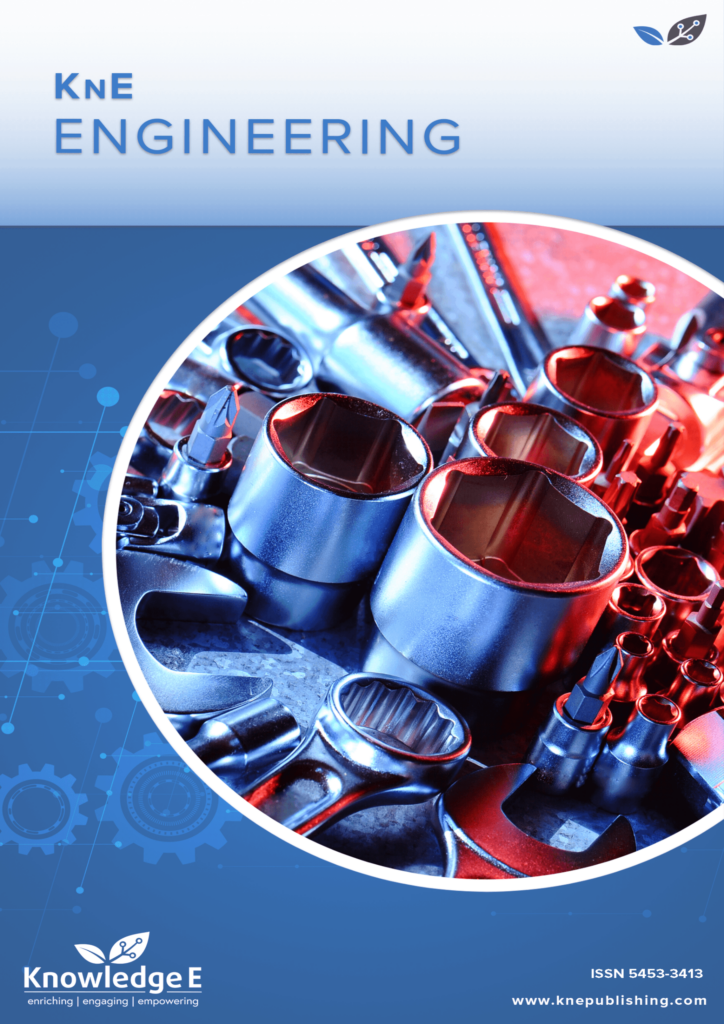
KnE Engineering
ISSN: 2518-6841
The latest conference proceedings on all fields of engineering.
Investigation of Structure and Properties of High-strength Bimetallic Materials Produced By Explosion Welding and Have Been Exploited in Arctic Climate
Published date:Apr 15 2019
Journal Title: KnE Engineering
Issue title: XIX International scientific-technical conference “The Ural school-seminar of metal scientists-young researchers”
Pages:231–238
Authors:
Abstract:
The paper presents the results of a comparative study of the structure, mechanical and magnetic properties of bimetallic materials obtained by explosion welding technology. The main layer of the studied bimetals is made of high-strength hull steel, and cladding – was performed by two corrosion-resistant steels with different degrees of austenite stability. According to the results of the shear test, it has been shown that explosion welding provides a solid one-piece connection with high values of the bond strength of the layers. Installed informative magnetic parameters could be used to develop non-destructive methods for assessing the changes occurring in the structure and phase composition of one of the bimetal layers under the action of plastic deformation.
Keywords: Magnetic non-destructive testing methods, high-strength bimetal materials, corrosion resistance, differential magnetic permeability, structure, cold rolling, explosion welding.
References:
[1] G.Yu. Kalinin, S.Yu. Mushnikova, O.V. Fomina, O.A. Kharkov, Two-layered clad steel with high corrosion-erosion resistanse, Chemical-metallurgical processes and materials of metallurgical productions, 1 (2016) 231-232.
[2] A.S. Oryshchenko, V.A. Malyshevsky, E.I. Khlusova, Modern constructional steel for application in Arctic region, Sudostroenie 3 (2013) 46-49.
[3] E.I. Khlusova, V.V. Orlov, The structural and properties changes in heat affected zone of the weld joints of low-carbon shipbuilding and pipe steels, Metallurg 9 (2012) 63- 76.
[4] E.A. Chernyshev, A.D. Romanov, E.A. Romanova, High-strength shipbuilding steels and alloys, Metallurg 2 (2016) 59-63.
[5] R. Mendes, J.B. Ribeiro, A. Loureiro, Effect of explosive characteristics on the explosive welding of stainless steel to carbon steel in cylindrical configuration, Materials and Design 51 (2013) 182-192.
[6] E. Zamani, G.H. Liaghat, Explosive welding of stainless steel–carbon steel coaxial pipes, Journal of materials science 47 (2012) 685-695.
[7] Y. Kaya, K. Nizamettin, An investigation into the explosive welding/cladding of Grade A ship steel/AISI 316L austenitic stainless steel, Materials & Design 52 (2013) 367-372.
[8] S.V. Gladkovskii, T.A. Trunina, E.A. Kokovikhin, D.I. Vichuzhanin, I.A. Golubkova, Structure and properties of explosion-welded composite from steels 12kh18n10t and 20, Metal Science and Heat Treatment 9-10 (51) (2009) 444-449.
[9] E.S. Gorkunov, E.A. Putilova, S.M. Zadvorkin, A.V. Makarov, N.L. Pecherkina, G.Y. Kalinin, S.Y. Mushnikova, O.V. Fomina, Behavior of magnetic characteristics in promising nitrogen-containing steels upon elastoplastic deformation, The Physics of Metals and Metallography 8 (2015) 838-849.
[10] M.N. Mikheev, E.S. Gorkunov, Magnetic methods for structural analysis and nondestructive testing, Moscow: Nauka, 1993.